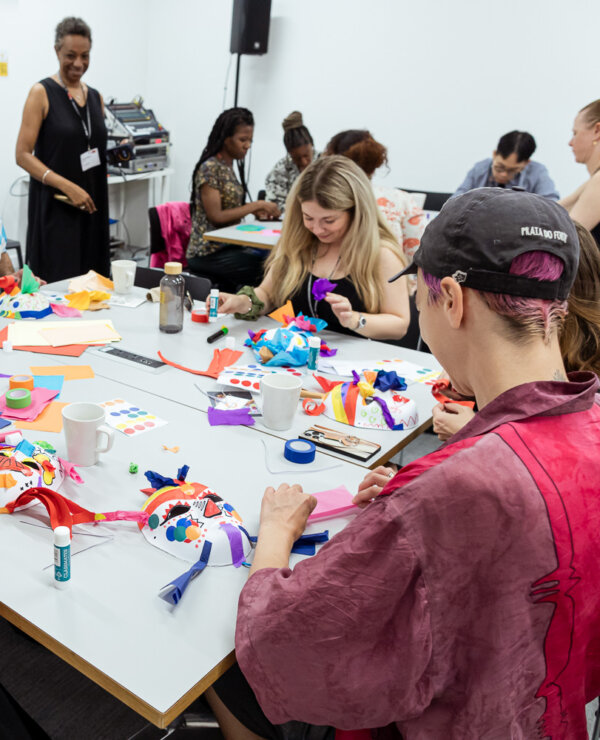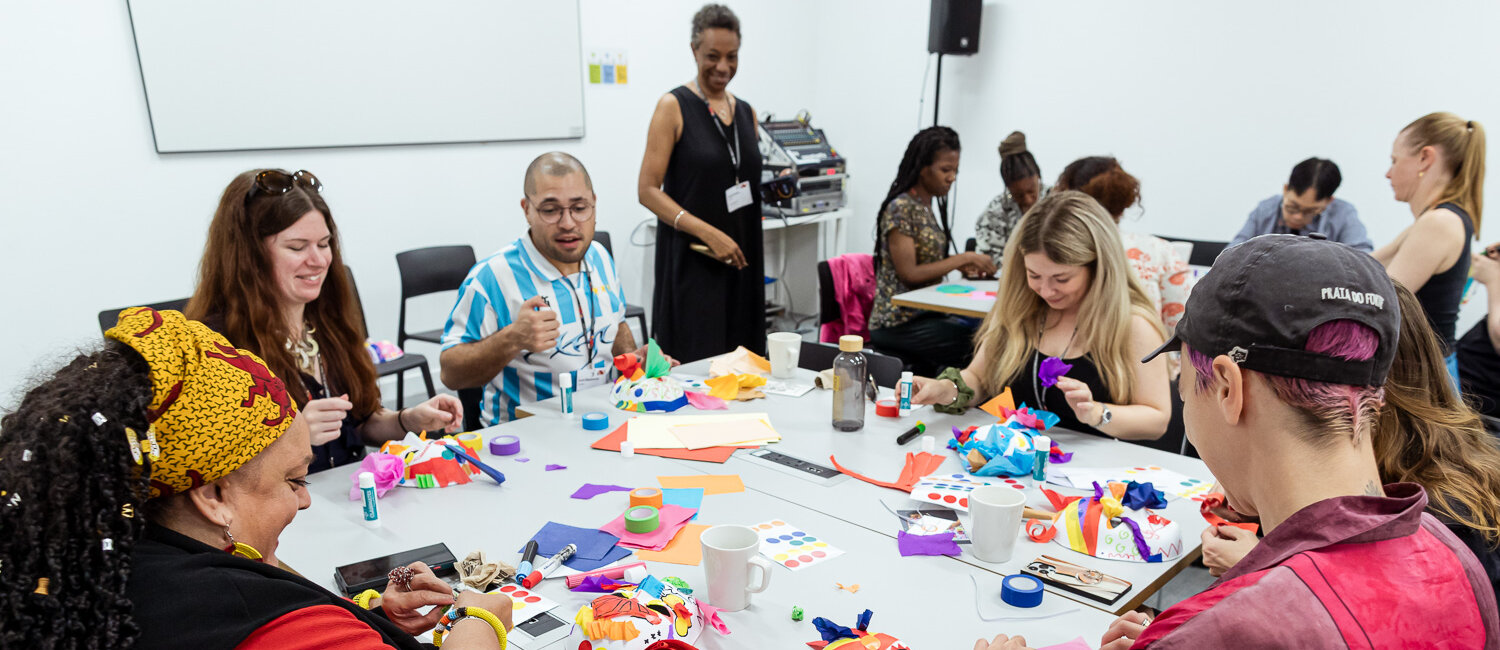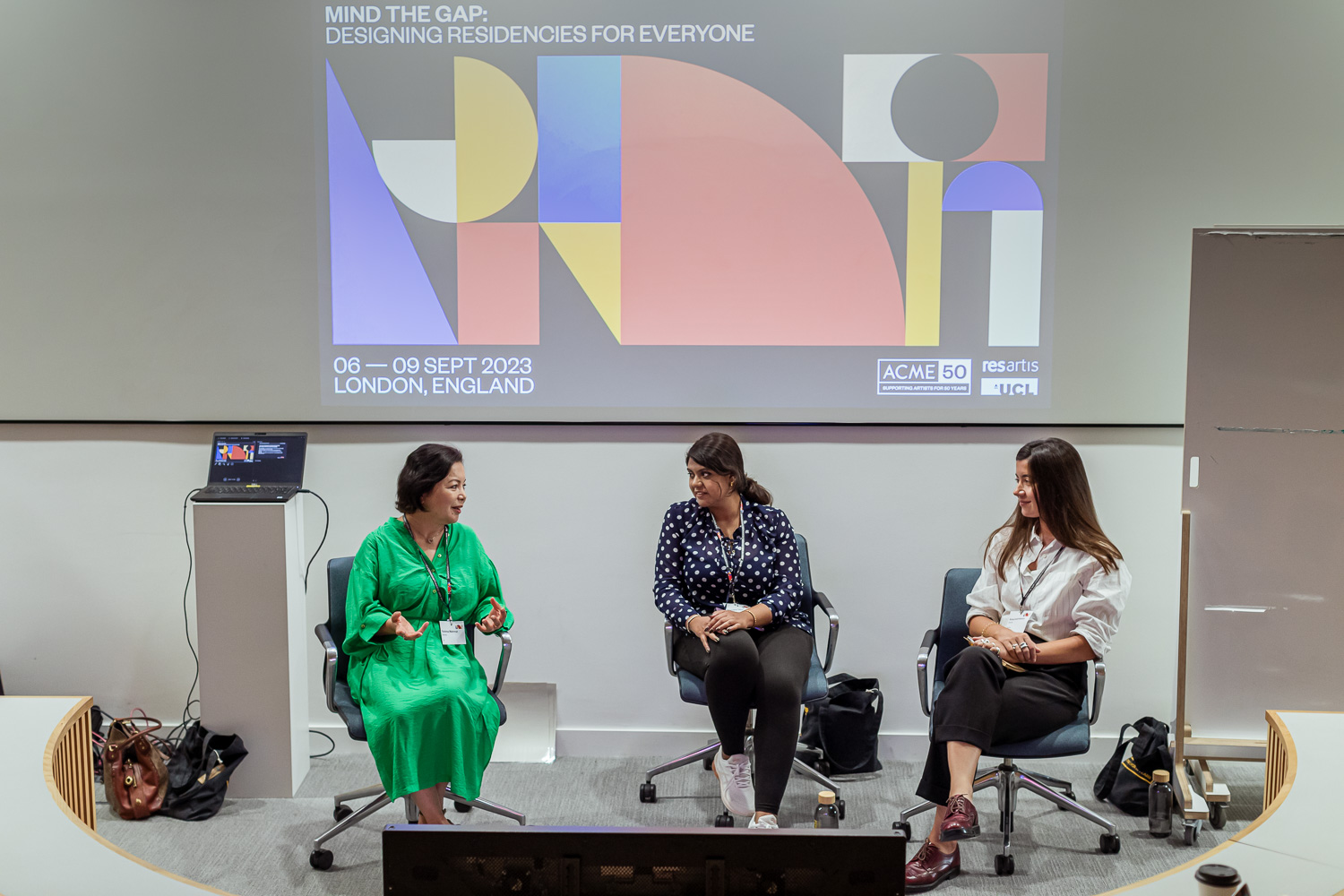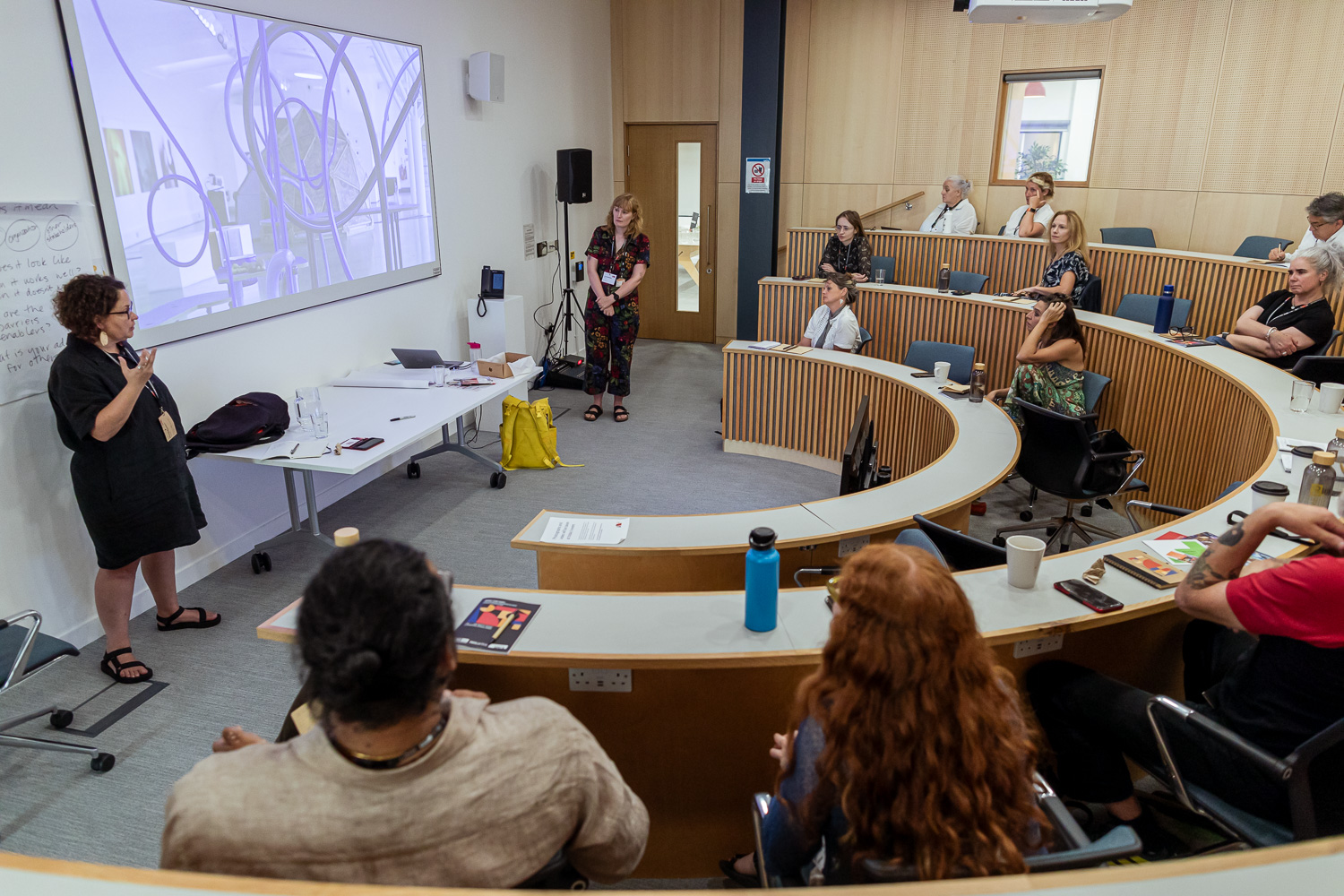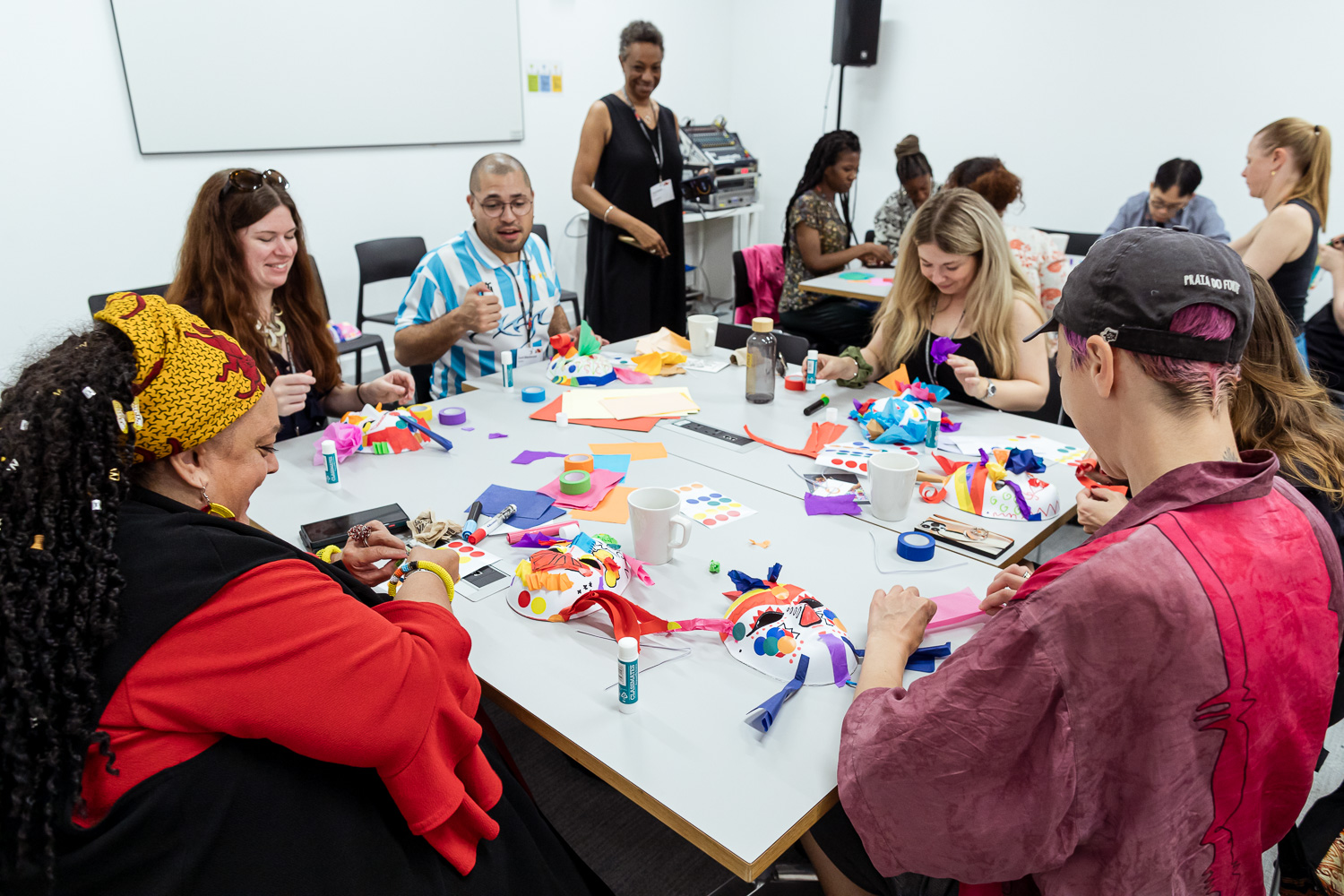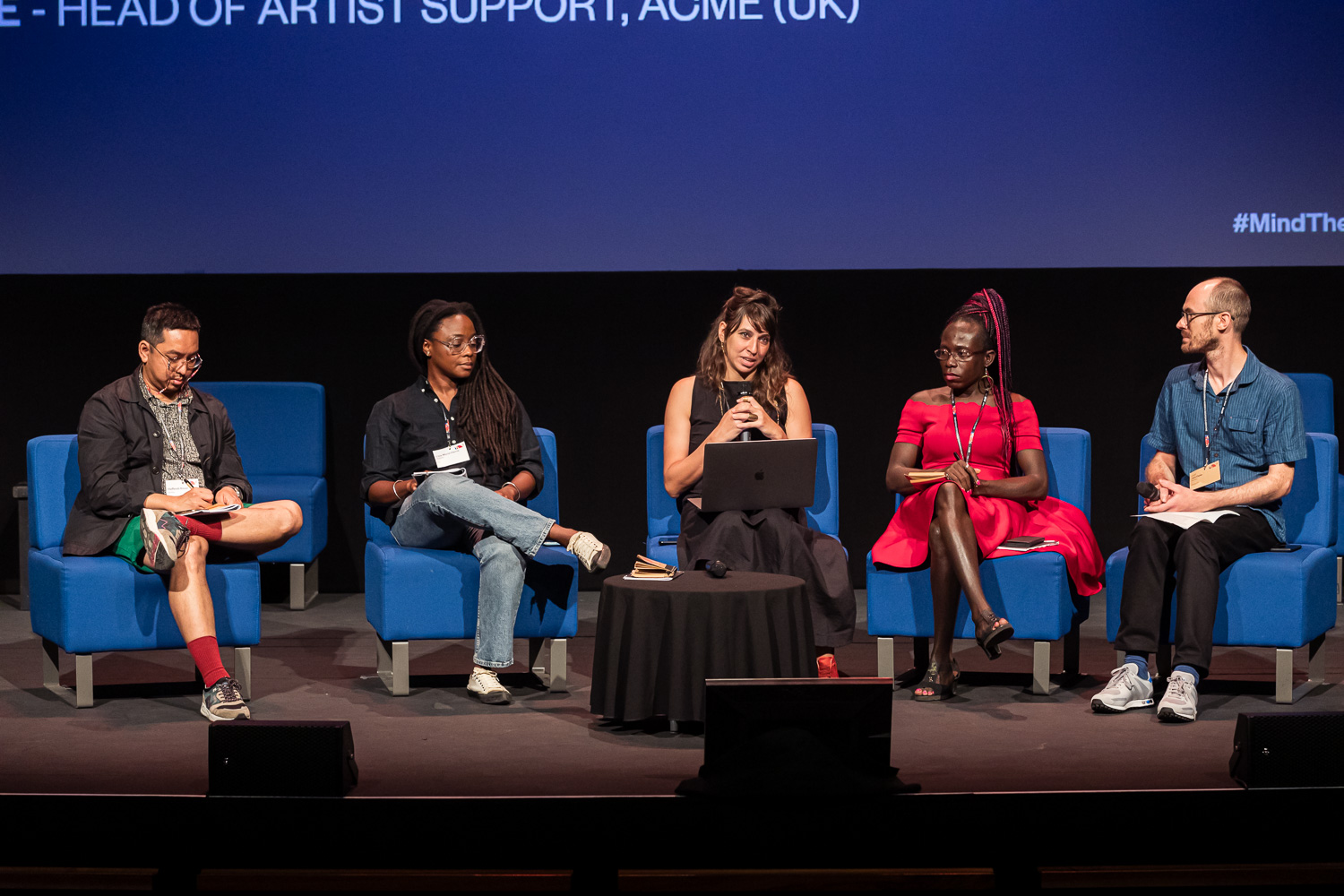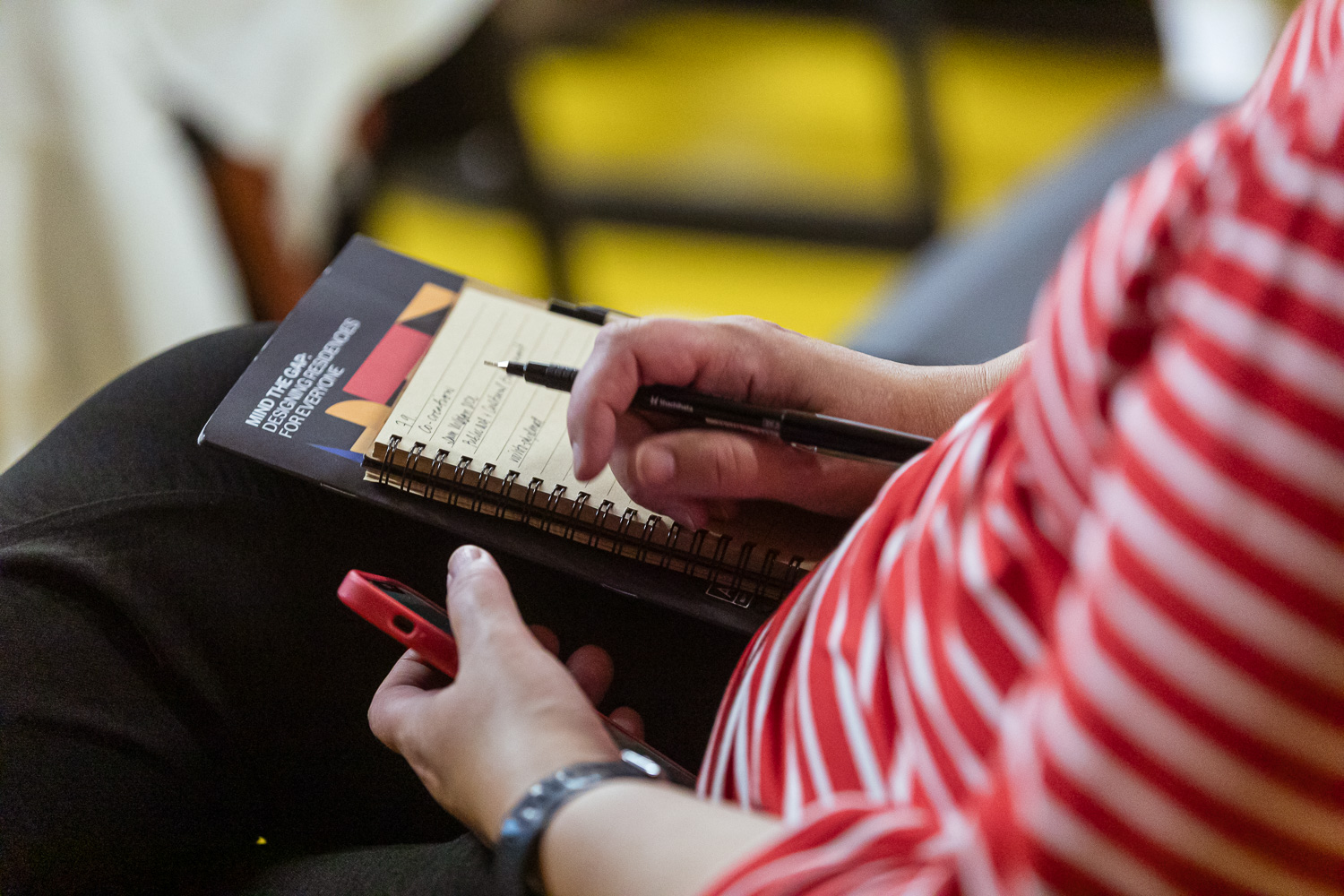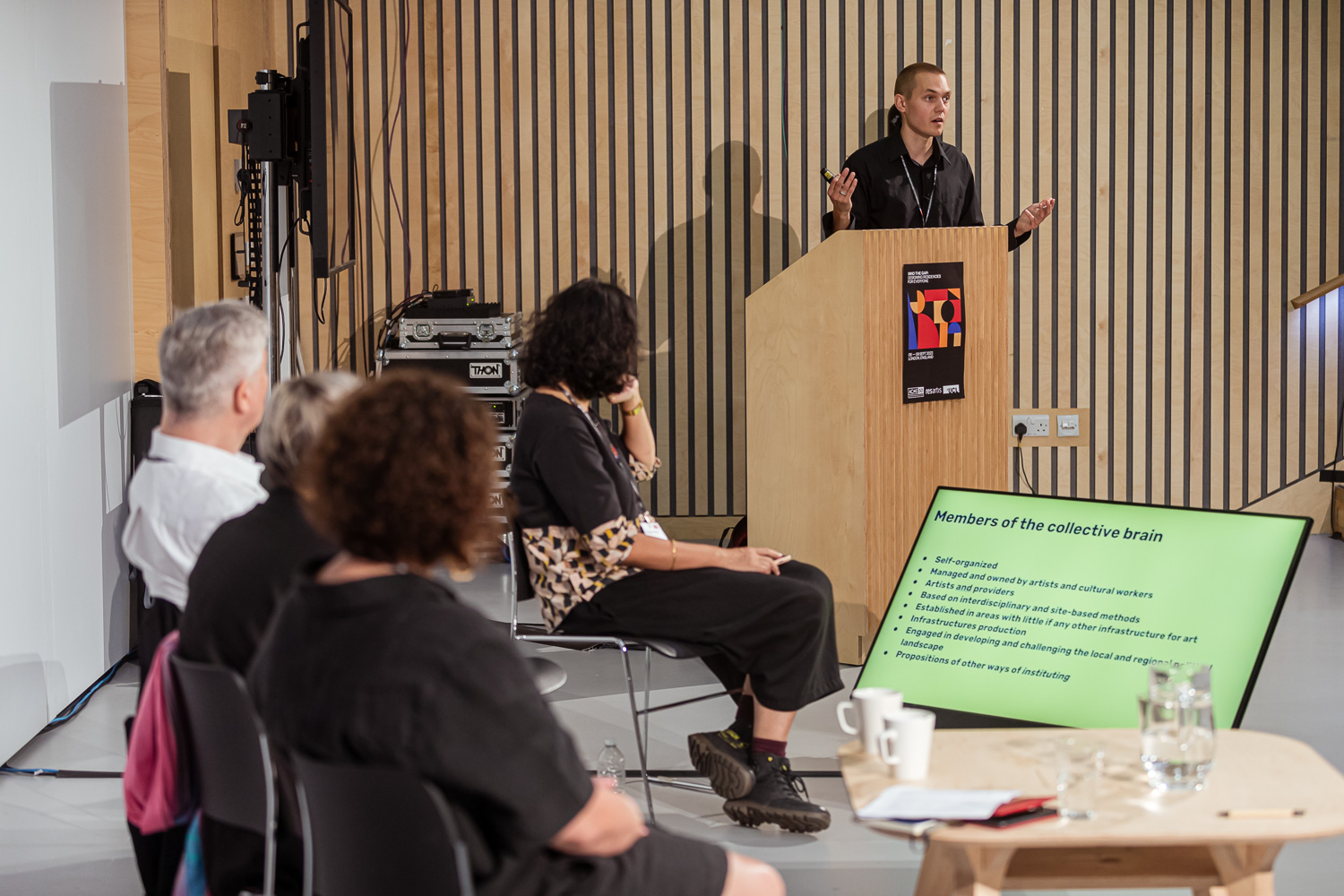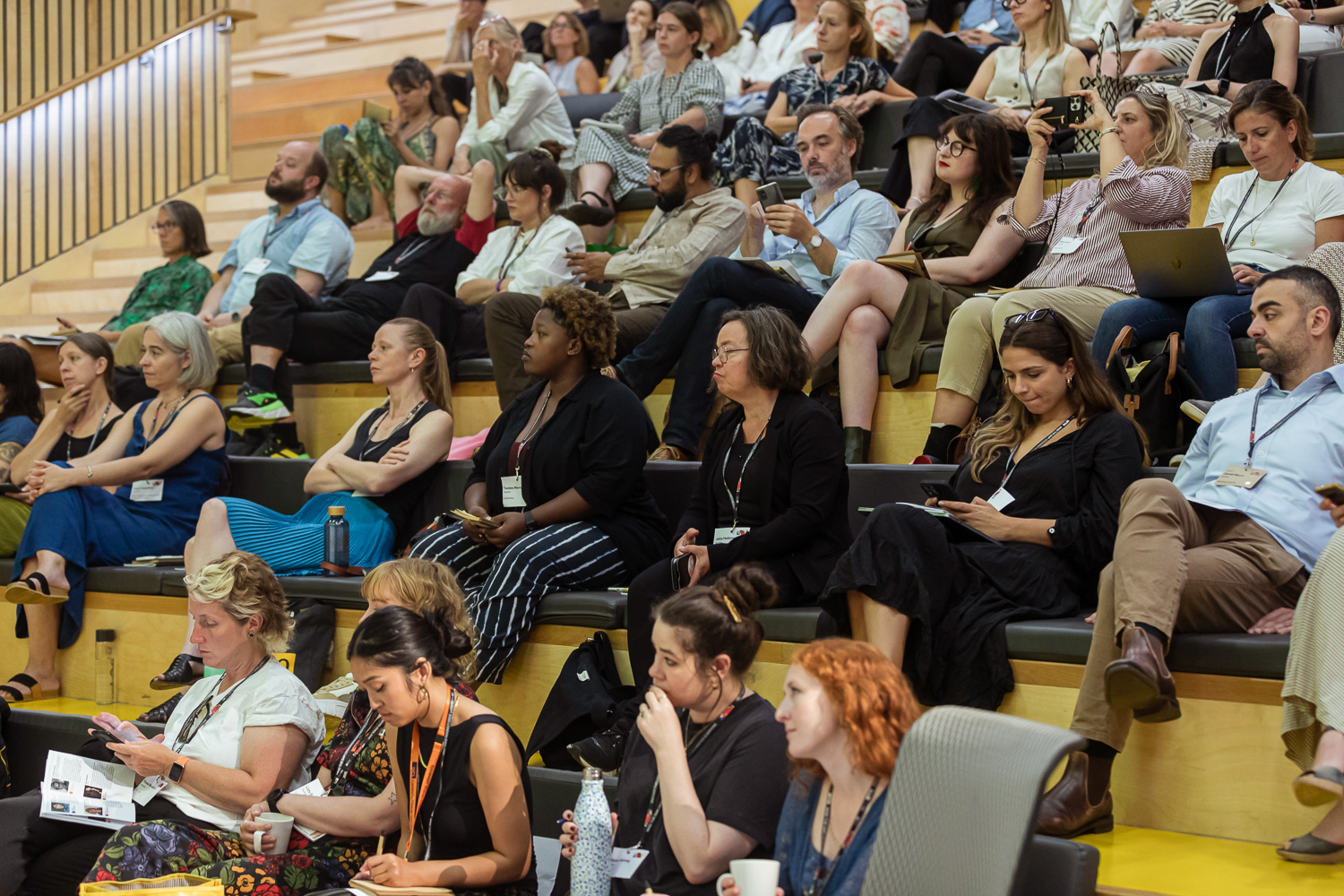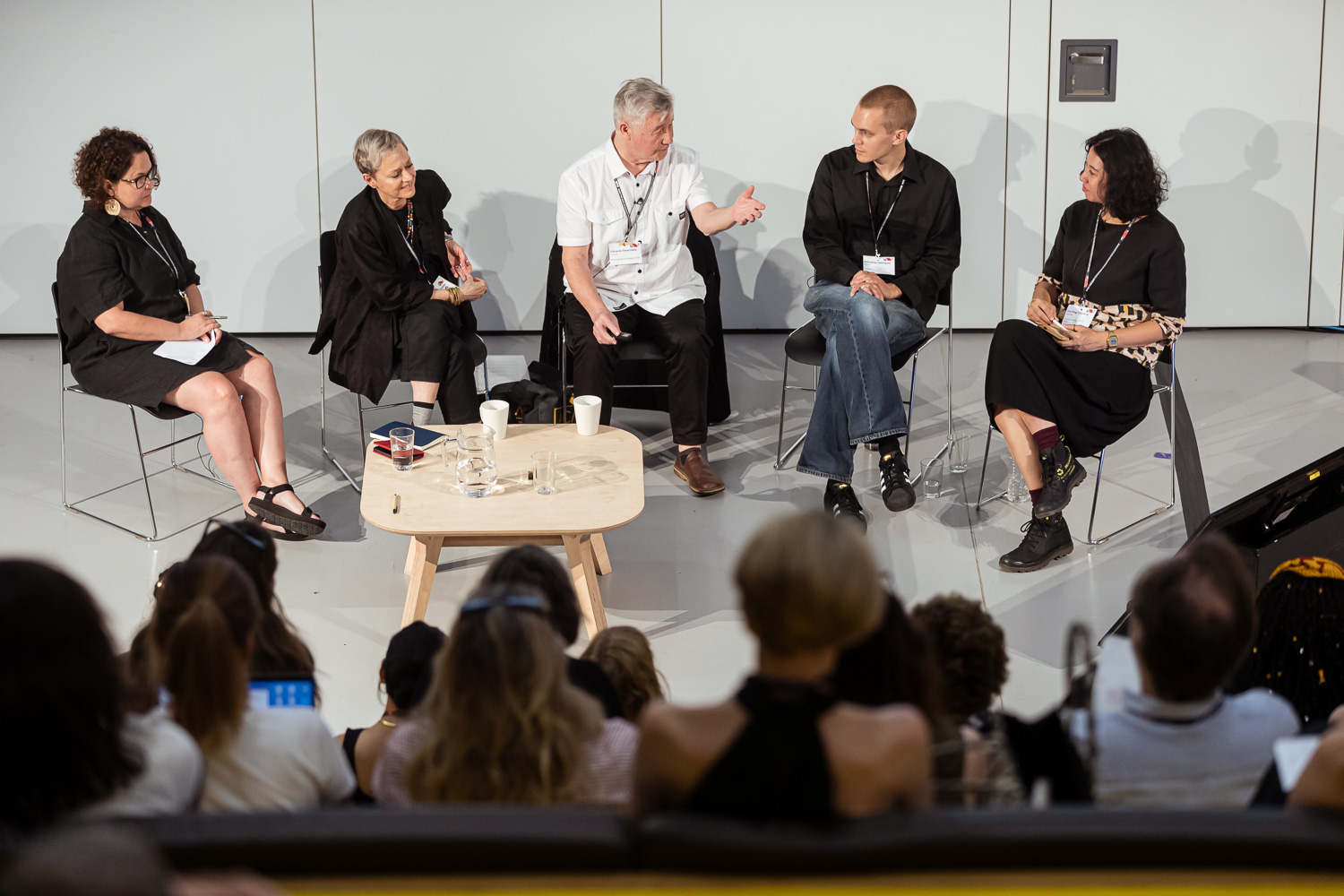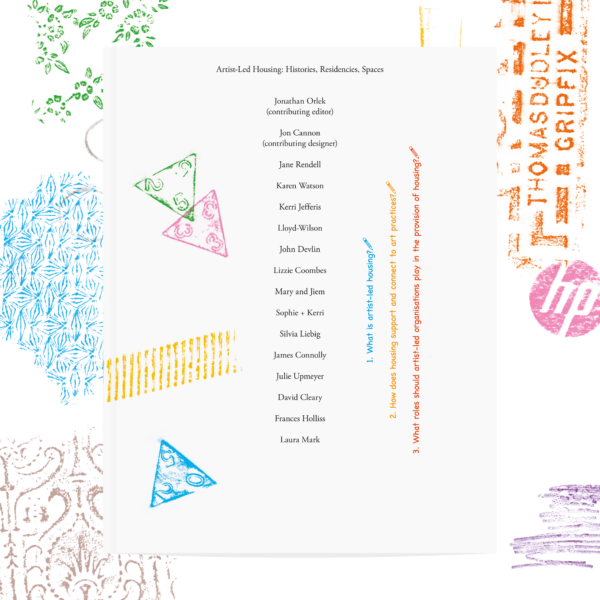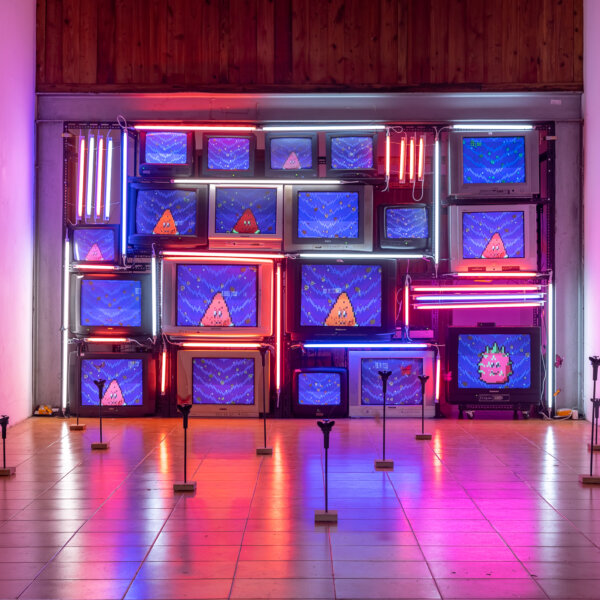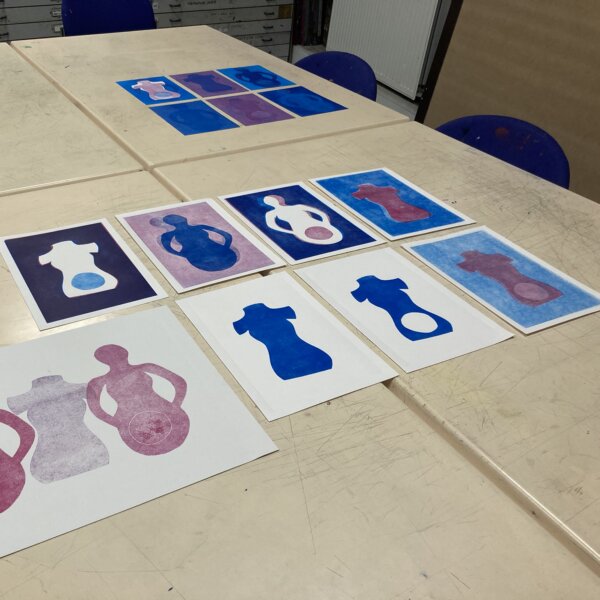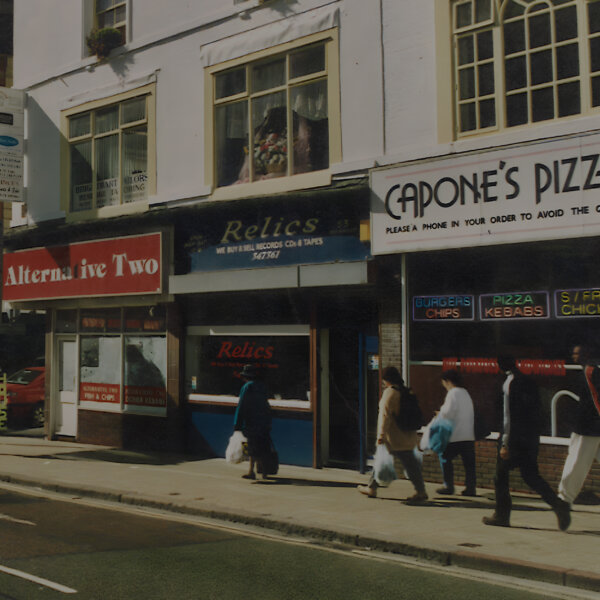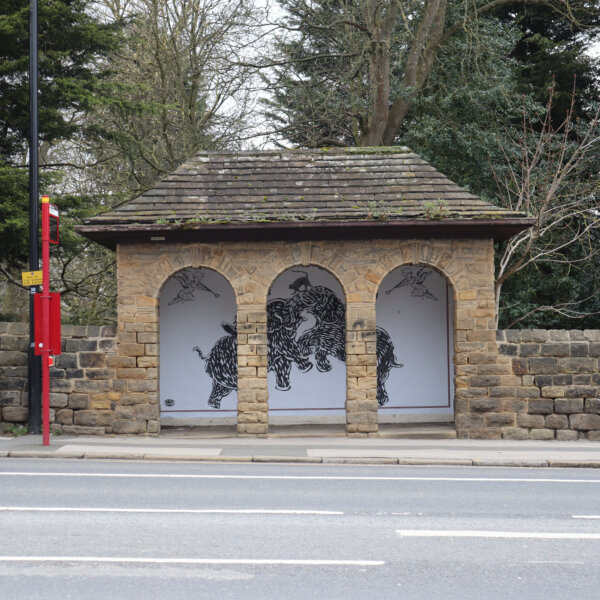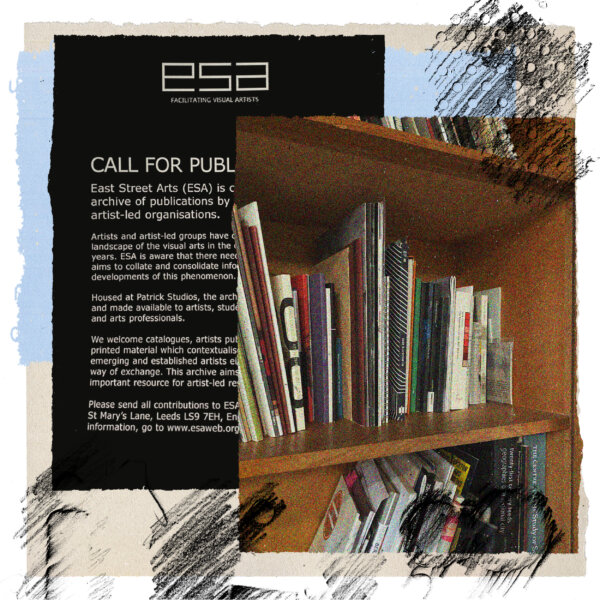2023 marks the 30th anniversary for East Street Arts (more on this to come) which incidentally coincides with the 50th anniversary for ACME. To mark these occasions, we both chose to programme a conference. Having welcomed ACME staff to HIVE in May, we received an invitation to facilitate a session at the ACME-hosted Res Artis 2023 conference, Mind the Gap: Designing residencies for everyone, this September.
Our team entered into a discussion about the title we had been given ‘Fairness & Value: Strategies for equitable collaboration” and quickly honed in on conflicting expectations and the importance of recognising the space and the place when mapping stakeholders.
Over the years East Street Arts has programmed residencies in multiple formats and locations, these have included:
- Long-term engagement in a terraced house on a residential street
- Research partnership in a specific building with technological facilities
- Neighbourhood placement to engage communities in town planning
- Multiple international exchanges with varying outputs
- Architecturally designed pods within a meanwhile space
- The Art Hostel design, install and placement scheme
These residencies have required very different approaches when it comes to understanding stakeholder expectations and therefore our strategies for fairness are tailored to individual needs. In addition, after supporting 25 artist-led spaces over the past five years, we understood the complex nature of these spaces, their precarity and relationships within their locality and how these came into play when facilitating a residency space.
So, after witnessing the appetite for something interactive during our very own conference HIVE, we designed a session asking five groups to carry out the following tasks using a hypothetical case study presented to them:
- Map all stakeholders and their expectations
- Edit the residency offer in line with these stakeholder expectations
- Think about how to market the offer to a diverse artist pool
- Discuss how you would safeguard your artist(s) in light of stakeholder expectations
Some interesting takeaways from the sessions were:
- Internationalism played a big part in expectations, standards, accountability and interpretation which allowed for a greater understanding of each others’ remit.
- Almost all of the hypothetical residency offers presented in the case studies were changed and became much more supportive which then instigated discussions around resource limitations whilst committing to providing a caring environment.
- Groups made ethical and moral judgements on case studies (in relation to location, demographic and expectations) which then enabled groups to discuss unconscious bias.
However, we were not there to just share our knowledge but to also gain knowledge from the incredible line up of guest speakers – all of whom had such different experiences and wisdom to share. Here are our team’s takeaways from the conference:
Kate West, Artist Development & Research Lead, said: “This conference could not have come at a better time for me and my role – having recently took up the position of Artist Development & Research Lead (previously Senior Producer of the Guild programme), I am currently developing our artist support and development strategy for the coming years. This strategy includes how we initiate, manage and resource our residency provision.
“My main takeaway from this conference was the desire globally to ensure artists continue to travel; exploring places, people, cultures and customs, and do so without anguish or prejudice. We must also continue to advocate for policy reform when it comes to visas, funding and the equality of opportunties. We should come together more often as ‘providers’ of these programmes to ensure we are all acting with care, and to interrogate our systems for administering these opportunities so we dont become complacent whilst also striving for transparency.”
Ajit Sidhu, Artist Development & Research Associate, said: “As a relatively new member of staff at East Street Arts and with a background in performing arts,for me, the conference was a great opportunity to be exposed to the wider visual arts sector while presenting and delivering the workshop alongside Kate. To have the opportunity to meet national and international delegates and exchange knowledge, sharing good practice was very useful for me and my role (researching the diversity of the artists East Street Arts support). We heard some interesting speakers with different perspectives and approaches which I will feed into my research. The workshop feedback was overwhelmingly positive and was a superb opportunity to expose East Street Arts work to diverse delegates.”
Images: Mind the Gap: Designing residencies for everyone, 6-9 September 2023, London. © Photo: Hydar Dewachi, Acme Archive
Other things!
-
News
Artist-Led Housing: Histories, Residencies, Spaces - available to buy!
Architectural researcher Dr Jonathan Orlek's brand-new publication, Artist-Led Housing: Histories, Residencies, Spaces is now available to buy.
-
News
Taipei Residency: Artist Call Out
Are you an artist using sound and audio-visual media at the core of your practice? Do you want to collaborate with communities and other artists to develop new artworks? Apply now! Deadline 12pm, Sunday 5 May 2024.
-
News
Leeds Creative Labs Follow on Fund: Herfa Martina Thompson Dr Zoe Tongue
Visual artist Herfa Martina Thompson and Law lecturer Dr Zoe Tongue first collaborated as part of Leeds Creative Labs, a programme that partners artists and academics, initiated by the University of Leeds’ Cultural Institute and facilitated in partnership with East Street Arts.
-
History
Listen to the Sounds of New Briggate
Sounds of New Briggate is our podcast series - hosted by local people, telling local stories - which celebrates New Briggate, a unique and vibrant high street in the heart of Leeds.
-
News
Artist Mohammad Barrangi’s large-scale murals come to the streets of Leeds
We're working with Leeds-based, Iranian-born illustrator and printmaker Mohammad Barrangi to bring three large-scale paper murals to the streets of Leeds.
-
Artist support
Submit your publications to our exhibition and learning library
Do you make books or printed materials on artist-led housing, live/work spaces, civic practice or living archives? Contribute now! Together we can learn.

